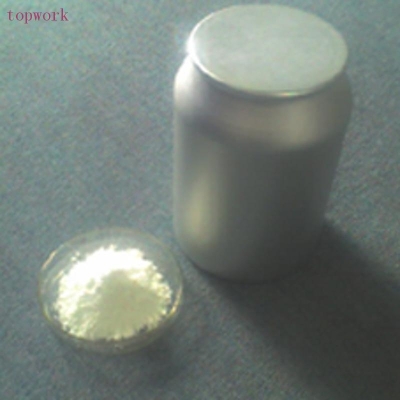-
Categories
-
Pharmaceutical Intermediates
-
Active Pharmaceutical Ingredients
-
Food Additives
- Industrial Coatings
- Agrochemicals
- Dyes and Pigments
- Surfactant
- Flavors and Fragrances
- Chemical Reagents
- Catalyst and Auxiliary
- Natural Products
- Inorganic Chemistry
-
Organic Chemistry
-
Biochemical Engineering
- Analytical Chemistry
-
Cosmetic Ingredient
- Water Treatment Chemical
-
Pharmaceutical Intermediates
Promotion
ECHEMI Mall
Wholesale
Weekly Price
Exhibition
News
-
Trade Service
The hotel's ballroom was nearly packed with scientists, and at the Obesity Week conference in San Diego, California, the audience was waiting to hear the results of the
highly anticipated drug trial.
More than a third of the participants lost at least 20 percent
of their body weight.
Previous studies have shown that this drug somaglutide is equally impressive in adults
.
This article is the original of Translational Medicine Network, please indicate the source for reprinting
Author: kope
After decades of work, researchers are finally seeing signs of success: a new generation of anti-obesity drugs that can significantly reduce weight without the same serious side effects
as before.
Yanovski, co-director of the Office of Obesity Research at the National Institute of Diabetes, Digestive and Kidney Diseases, said
.
Continuous applause echoed through the room, "like you're performing on Broadway.
"
The number of obese people has tripled
01
The number of obese people worldwide has tripled since 1975; According to the World Health Organization (WHO), in 2016, about 40 percent of adults were considered overweight and 13 percent were obese
.
Weight gain often increases the risk of
health conditions such as type 2 diabetes, heart disease, and certain cancers.
The World Health Organization recommends a healthier diet and physical activity to reduce obesity, but when lifestyle changes aren't enough, medications may help
.
These new drugs mimic hormones known as incretin, which can lower blood sugar and suppress appetite
.
Some are already approved for the treatment of type 2 diabetes, and they are starting to gain approval
to induce weight loss.
The ability to melt weight by adjusting biology confirms the idea that
obesity is a disease.
In the past, scientists and the public often thought that obese people simply lacked the willpower
to lose weight.
But there is growing evidence that most people's bodies have natural sizes that are difficult to change
.
"The body will defend its weight," said
Richard Dimadchi, a chemist at Indiana University Bloomington.
However, some researchers worry that these drugs will exacerbate some society's obsession
with weight loss.
Body shape is not always a good predictor
of health.
Research questions abound, including who will respond to treatment and whether people have to take these drugs for the rest of their lives — a huge hurdle because they also have a high price and injections typically cost more than $
1,000 a month.
Ever-improving molecules
02
In 1994, Friedman, a molecular geneticist at Rockefeller University in New York City, discovered that the defective gene encoding leptin, a hormone produced by fat tissue that causes feelings of
fullness.
Leptin supplementation in mice deficient in leptin reduced hunger and body weight
.
Along with this came an explosion of research on the basics of obesity, as well as research into
drug treatments.
But these early drugs only caused moderate weight loss and serious side effects, especially for the heart
.
In the 2000s, the U.
S.
Food and Drug Administration (FDA) began approving drugs that mimic GLP-1 as a treatment
for type 2 diabetes.
But the scientists noticed that participants in the clinical trial also lost weight because of GLP-1's effects
on receptors in the brain that control appetite and receptors in the gut that slow digestion.
Over time, companies began experimenting with these diabetes drugs to lose weight
.
By the mid-2010s, one such drug, liraglutide, was able to lose an average of about 8 percent of their body weight, 5 percentage points
more than those who took a placebo.
But in early 2021, scientists marveled at a phase III clinical trial looking at a new drug of the same type: semaglutide
.
The molecule is a modified version of liraglutide that acts on the same pathway but remains intact and active in the body for longer
.
Weight loss lasts for a year or two
03
Historically, it has not been possible to safely reduce body weight by more than 10 percent by pharmacological methods, and Timo Müller, biologist and director of the Helmholtz Institute for Diabetes and Obesity in Munich, also believes that new treatments improve cardiovascular health
.
A more potent drug, tisiparatide, not only targets the GLP-1 receptor; It also mimics another hormone involved in insulin secretion, called glucose-dependent insulin stimulating peptide (GIP).
This treatment, approved in 2022 for type 2 diabetes, saw an average weight loss of 21% at the highest dose, compared to a 3%
drop with placebo.
Despite uncertainty, the level of weight loss after tisiparatide treatment is close to a level
that is usually only achievable with bariatric surgery.
This result will result in a weight loss of 30% or more after six months, and the weight loss will persist for a year or two
.
Although the results for tisiparatide are promising, it has puzzled researchers
.
It's clear how GLP-1 helps stimulate weight loss, but the effect of GIP is surprising
.
In fact, scientists have long thought that GIP actually stimulates obesity: Mice with dysfunctional GIP receptors are resistant to obesity
.
Therefore, in order to induce weight loss, the researchers believe that the receptor should be turned off, but tisiparatide works the opposite
.
Do I need to take it for life?
04
A big question researchers now face is whether people need to take these drugs for the rest of their lives to maintain their weight
.
A subset of clinical trial participants who stopped taking semaglutide and stopped the lifestyle intervention studied lost about two-thirds
of their weight after one year.
Another unknown is who will react to these drugs and who will not
.
These drugs appear to be less effective
at losing weight in people with type 2 diabetes than in people without diabetes.
Diseases such as fatty liver and fat around organs may also affect how people respond to
different medications.
Some researchers also worry that the drugs may also inadvertently reinforce the controversial link
between being overweight and health.
One study found that nearly 30 percent of people considered obese were metabolically healthy, and another study showed that other health problems tend to predict someone's risk
of death more than weight.
Demonstrate that factors
other than body weight need to be considered when judging health status.
Regardless of the upfront cost, some scientists emphasize that tackling obesity could allow the health care system to save a lot of money
by reducing the range of diseases associated with the disease.
Although researchers are still studying the complex causes of obesity, including genetics, environment, and behavior, many support the idea that
biology plays an important role.
Resources:
style="white-space: normal;margin: 0px;padding: 0px;box-sizing: border-box;">Note: This article is intended to introduce the progress of medical research and cannot be used as a reference
for treatment options.
If you need health guidance, please go to a regular hospital
.
Referrals, live broadcasts/events
01/12 14:00-16:00 Online
Olink Multiomics Cohort Forum
Scan the code to participate for free
03/02-03 09:00-18:00 Shanghai
The 2nd Yangtze River Delta Single-cell Omics Technology Application Forum
Scan the code to participate for free







